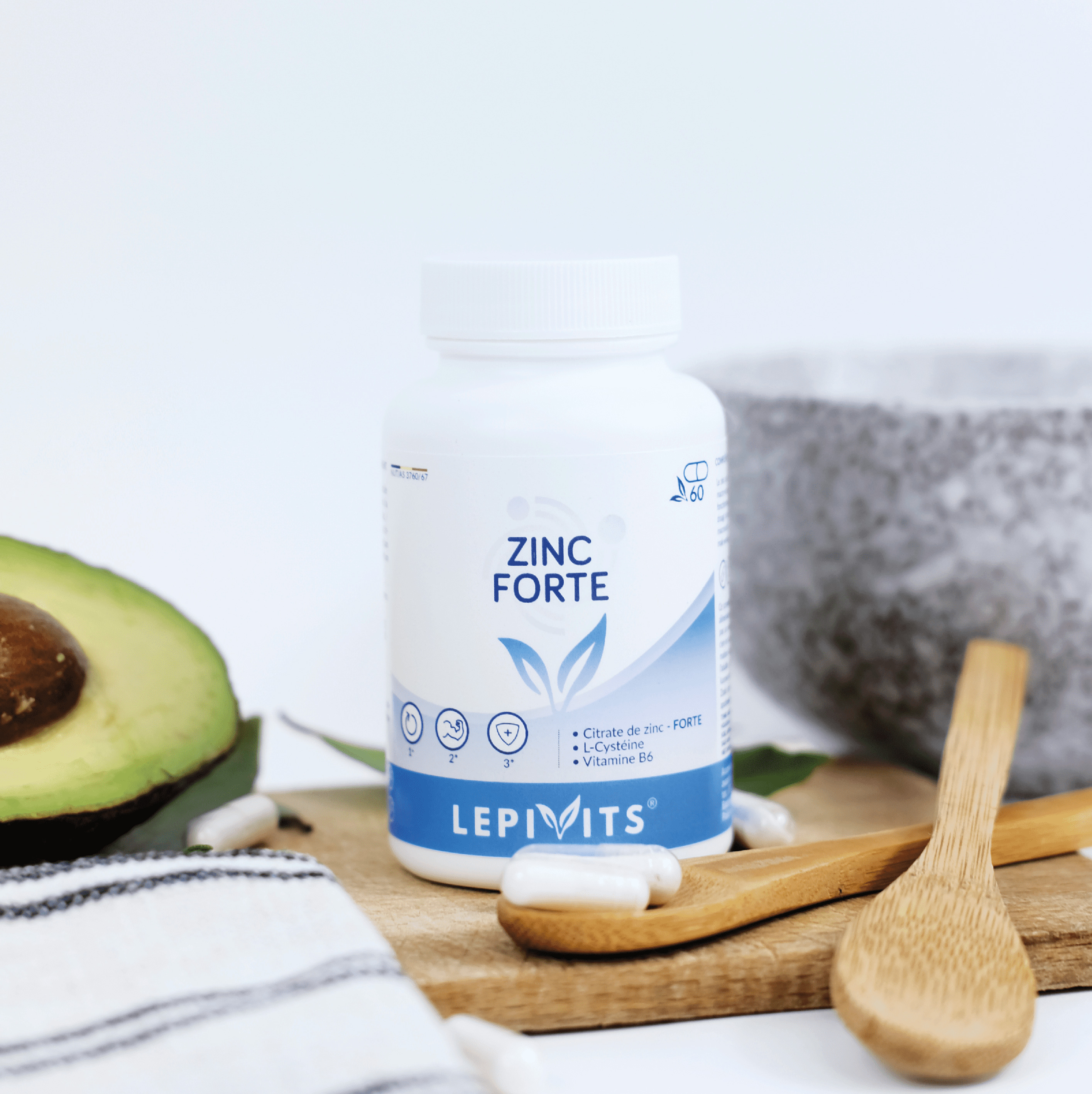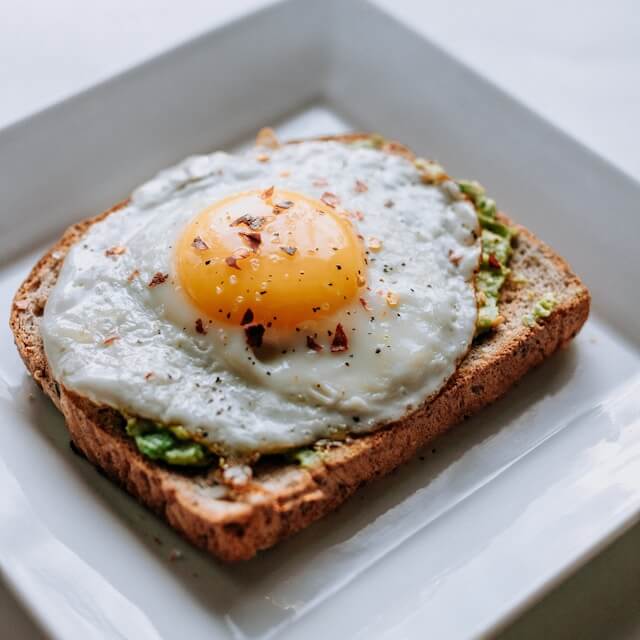A zinc deficiency, often referred to as zinc insufficiency, is more common than one might think.
Yet this essential mineral plays several key roles in the body.
Here are 7 signs of zinc deficiency you should not ignore — and how Zinc Forte can provide you with a targeted solution if you experience them.

The 7 typical signs of a zinc deficiency
You feel tired
Fatigue is one of the first and most common signs. It is not specific to zinc deficiency, but it should still be taken into account. It is the combination of the different signs we will outline that points toward a zinc deficiency. Indeed, those affected often experience significant fatigue. Their brain activity slows down, sometimes accompanied by memory lapses.
Your immunity is weakened
Do you often feel run down? Do you catch colds easily? A zinc deficiency makes the body more vulnerable. Zinc plays a key role in the normal functioning of the immune system. A lack of micronutrients weakens innate immune responses, making them less effective, which in turn leaves you more exposed. Zinc also acts as an antioxidant, helping protect cells against oxidative stress. When zinc levels are low, immune responses are further reduced.
You’ve lost your appetite
Loss of appetite is one of the indicative signs of a zinc deficiency, though it has not yet been fully explained. Several hypotheses have been proposed. One suggests that this deficiency increases the amount of undigested food in the intestine, which could be responsible for the reduced appetite (3). This leads to a vicious cycle: the less one eats, the greater the zinc deficiency becomes, and the more appetite decreases, and so on. Moreover, zinc is an essential coenzyme for protein synthesis. In fact, it contributes to normal protein production. Gustin, the protein of the taste buds, is also zinc-dependent.

You’re losing hair, your nails are brittle, or your skin is peeling
Zinc is a trace element that helps maintain normal bones, skin, nails, and hair. Hair and nails share a common component: a protein called keratin. Zinc is found in high concentrations in the epidermis because it plays a role in the differentiation of keratinocytes. A zinc deficiency makes hair thin and brittle and is one of the causes of hair loss. Similarly, a lack of this trace element can lead to brittle or ridged nails, sometimes with the appearance of white spots.At the skin level, and more specifically in the epidermis, significant flaking can occur, causing the skin to peel (4). Skin quality is also affected, occasionally with acne.
You’re feeling low and your mood is unstable
People with a zinc deficiency are more likely to experience low mood, mood swings, and similar issues. It is not yet fully understood to what extent such a deficiency impacts mood and emotional well-being. The latest hypotheses relate to the antioxidant activity of zinc. This mineral is thought to play a role in affective and cognitive functions. In fact, zinc contributes to normal cognitive function. It also acts on glutamate circuits, a neurotransmitter involved in the brain’s reward pathways.
You’re having difficulty conceiving
Zinc is involved in numerous biological processes and therefore plays a central role in the proper functioning of the body. It also has an important role in couple fertility. Zinc is a trace element that contributes to:
normal fertility and reproduction;
the maintenance of normal testosterone levels in the blood.
Your wounds heal poorly
When you get injured, your wounds take longer to heal. A zinc deficiency weakens the healing process. Zinc plays a role in cell division and contributes to normal protein synthesis. It is through cell division that our tissues (skin, mucous membranes, etc.) develop, renew themselves, and also repair — allowing wounds to heal properly.

Overview of the main signs of zinc deficiency
Weakened skin and nails
A zinc deficiency can manifest as less resilient skin or brittle nails.
Dull or thinning hair
Insufficient zinc intake can affect hair vitality.
Less efficient immune system
Zinc contributes to the normal functioning of the body’s natural defenses.
Delayed wound healing
Zinc plays a role in cell division and tissue regeneration.
General loss of vitality
Zinc helps maintain healthy skin, hair, and nails.
Altered appetite or taste
A zinc deficiency can affect taste perception.
Metabolic disturbances
Zinc contributes to the normal metabolism of macronutrients.
The best solution is to start by rebalancing your diet. Taking dietary supplements rich in zinc and highly absorbable by the body will help replenish this trace element, reducing the early warning signs of zinc deficiency as quickly as possible.
Correcting a zinc deficiency with Zinc Forte

Composition & Dosage
1 capsule per day, for adults only
Contains: elemental zinc 22.5 mg (225% NRV), L-Cysteine 150 mg, vitamin B6
Advantages of the formula
- Zinc in citrate form, a second-generation type known for its superior bioavailability compared to first-generation zinc salts such as oxide or sulfate.
- L-Cysteine, a natural amino acid that acts as a zinc transporter.
- Active vitamin B6 (pyridoxal-5’-phosphate), a coenzyme form that contributes to the normal metabolism of proteins and glycogen.
- Clean formulation: vegetable capsule (pullulan), free from gluten, lactose, and artificial excipients — suitable for vegetarians/vegans.
Targeted benefits
Contributes to the normal functioning of the immune system, the health of skin, hair, muscles, and the metabolism of macronutrients — Zinc and Vitamin B6 play a key role.
Customer reviews
Average rating of
4.8/5 based on 64 reviews

Authentic extracts:
“I’ve been using it for years without any issues.”
Marcel V.
“After only 1 month, I noticed a clear improvement in the appearance of my skin.”
Anicée G.
FAQ pratique sur Zinc Forte
The time needed to feel the benefits depends on the initial level of deficiency. In general, a one-month course is recommended to allow the body to gradually restore its zinc reserves.
Yes: vegetable capsule, gluten- and lactose-free, with no synthetic excipients or anti-caking agents, and suitable for vegetarian/vegan diets.
Yes, but it is advisable to take it at a different time from iron or copper supplements, as these may reduce its absorption.
Conclusie
Zinc deficiency manifests through concrete and common signs. If you experience them, Zinc Forte offers a targeted solution, formulated for optimal absorption and maximum tolerance. It helps strengthen natural defenses, supports skin, metabolism, and vitality — all while fitting perfectly into a healthy lifestyle.

